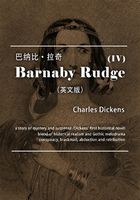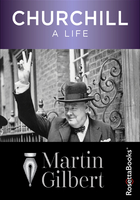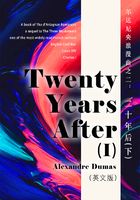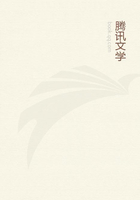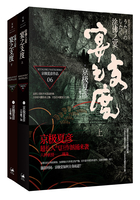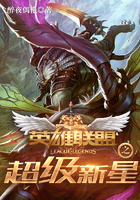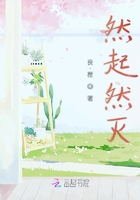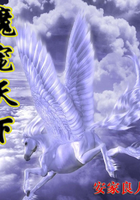Outside the window the poplars rustle:
'Your king is on this earth no more.'
AKHMATOVA, 'THE GREY-EYED KING'
Many people, probably most of the people on this planet, take special spiritual precautions before a journey. Old ladies in Italy never allow the train to pull out of the station before they have crossed themselves and uttered a swift prayer for a safe arrival. I embarked on the most important quest of my life without so much as crossing my fingers or touching wood. The only ritual I engaged in was the prodigal pouring out of money to acquire an airline ticket from London to Melbourne, with a stopover in Italy.
Nothing was amiss in my little Tuscan house. My housekeeper was less unwell than usual, and her husband had not had an accident for months. My old Tuscan cat sat in the amber sunlight and warmed his nephritic bones, and at night crept smelling of bracken and leaf-mould into my bed and lay against my side with his claws carefully tucked under my bare arm where they could flex with glee without piercing anything but sheets.
In my desk I found the old notebook in which I had begun to plot The Female Eunuch. I turned to a blank page and began to write:
Here we go. Daddy, in at the deep end. I discover, Papa, that I am like you in one thing at least. I hate remembering. There are days when I wander for hours in a spacious sewer of memory. And there are other days when memories stick up like dark spars in a sunlit river and I feel myself dragged under by them, struggling in darkness while the sparkling present slides over my head. These stubs of half-rotten lumber catch up junk, pieces of string too short to use, stoppers from vanished bottles, and choke my mind with them. I never remember you giving me advice or encouragement, but I can remember you singing:
Pack up all my cares and woe,
Here I go,
Swinging low,
Bye bye blackbird.
Where my honey waits for me.
Sugar's sweet,
So is she,
Bye bye blackbird.
Not a soul to love or understand me,
All those hard luck stories they all hand me,
Make my bed, light the light,
I'll be home, late tonight,
Blackbird bye bye.
Useless to ask what it all means. You can't treat such gibberish as oracular. Some children can remember their fathers reciting Urdu poetry or Marlowe, or teaching them to recognise birds and butterflies, to spot trains, to play chess or cricket. But you, Daddy dear? Not a curve-ball, not a cover-drive, not a card-trick. Not a maxim. Not a saw, adage or proverb. Except 'You're big enough and ugly enough to take care of yourself.' This is my Enchiridion Militis, my soldier's breastplate. This and 'Bye bye blackbird'.
Sometimes I love you,
Sometimes I hate you,
But when I hate you,
It's 'cos I love you.
This section of the notebook ends: 'How shall I keep sane during this pilgrimage, Daddy?' I can almost hear Daddy saying, 'It's news to me that you were sane when it started.' Daddy once stopped a friend in the street and said to her about my mother, 'She's mad of course.' He probably thought my genes were all my mother's, despite my Greer face. Probably thought we were all mad but he. But no, the sedatives in the bathroom cupboard were his, not ours. Except when the hospital put me on the same ones, Tropinal, for nervous exhaustion. Daddy's own disease. Bone of your bone, Daddy. You shall not escape me.
Should I be listening to the warnings? Tiresias said to Oedipus:
How terrible is wisdom when
it brings no profit to the man that's wise!
If my ignorance is bliss who am I wilfully to pick it to pieces? Like a teenager working on a pimple, I could end up with a pus-filled crater. A scar conspicuously worn, instead of the common suburban hypocrisy that was my birthright. My mother asked me on Christmas Day why I wanted so much to know my father's background and early life. Looking for an answer she would not ridicule I said, 'Hamish Hamilton have paid me a lot of money to write a book about him.'
'Gee,' said Mother, 'I'm glad I don't have to do that to earn a crust.'
At the next blank page the notebook continued:
I go without your blessing, without your knowledge, unless you are sitting on a cloud ledge somewhere above me, dressed in a sheet with a tin circlet floating over your head. There's more than one way of knowing; my bones know more than my brain can handle. The software is in the genes, Papa, and the mind is just the VDU. I need a way into the memory bank though, some filenames. The programme cannot be wiped, but it is not write-protected. Each time a memory comes up on the screen new material is incorporated. Until I begin to forget I cannot remember.
Perhaps, if each day I do a keeping-in-the-present exercise, I shall keep my bearings. Whatsay?
The telegraphic word forces a memory to pop up; when advertising men got married they could expect to read out at the reception the following telegram from Reg Greer, the Melbourne Representative of the Adelaide Advertiser: 'Six more insertions needed to complete contract.' Ho ho. Children never share their parents' sense of humour. Or vice versa.
The sun is on my hands. I could say the Italian sun, but the sun has no nationality. The sun is on my eyelids too, and on a strand of grey-blond hair which lifts across my face on the almost imperceptible movement of the breeze. My house sits on the side of a great basin of luminous air, surrounded by low hills that look like huge people sleeping under grey blankets, the same recycled wool blankets that soldiers were issued in the Middle East when Reg Greer was there in 1942, and famine-stricken Ethiopians when I was there in 1985.
The holm oaks will keep their leaves till spring; now they are tarnished gold, made transparent by the heavy dew of the long night. The ash carries its heavy posies of brown seeds. The fig has dropped its leaves but its fruit clings to the bare branches. The honeysuckle over the door is still green and the wisteria is just turning faintly quince yellow. When the dew dries, I'll put on my overalls and walk up the hill through the brambles. There should be cyclamen, maybe a mushroom or two for an omelette.
Gardening is a good defence against memory, for it is all in the future. I can see branches to be lopped, fronds to be staked, briars to be tied in. There has been too much lax growth. The first frost will be punishing.
Jays and magpies are screaming in the wood. The air is so clear that when the woodsmen speak from the other side of the river, I can hear them as if they were at my elbow. They are nurses from the hospital in Cortona and keep quiet much of the time; if they were real boscaioli they would keep up a stream of human noise, whistling, singing, blaspheming, telling jokes, coughing, to warn huntsmen and foraging boar and sleepy vipers of their whereabouts. The real boscaioli are all old now; a sudden silence can mean accident, injury or seizure, a leg ripped by a chain saw, a tree trunk fallen the wrong way, an unwary step into the ravine, a snake bite, a heart attack. Our steep wooded hillsides are dangerous; a man who steps backwards without thinking can fall hundreds of feet into sharp shale and jagged rocks. The first rule is never to go alone, but many of the peasants are unmarried these days and all of them are old. Those who found wives and made sons see their sons only at holiday time. The olives must be picked and the firewood got in before the harsh winter, if the old peasants who are all the population we have left are to survive. Nobody wants to go to the ospizio.
Lisa's husband, Berto, is working on the hillside opposite. As long as the sun is on the slope we can see him loading the timber he has cut but, when the sun goes behind the hill and the blue shadow creeps up from the river, Lisa grows uneasy. Only a few months ago, Berto took one step too many in the long grass and brambles that masked a precipice, and split himself in half, one leg down and one leg up and nothing to haul himself up by. They encased him in plaster of Paris from the waist down and a week later he cut it off. They had it on crooked anyway. Now, like me, he limps at the end of the day.
There's not a cloud in the sky. It's all in the valley below me, like a flat blue dish of white soup. My neighbour's Rottweiler bitch, spooked by the mist and the strange crackling noises that condensation makes when fat drops bounce on the dead leaves, won't stop barking.
When he died Daddy hadn't any money. Not a bean. And yet I've never felt poor. I always called myself middle of the middle class. All my life I have felt rich, but, now I come to think of it, Advertiser Newspapers paid my father badly for more than thirty years. 'His boss, Sir Lloyd Dumas, thought it was an honour to be allowed to work for the 'Tiser,' his old friends told me. For some reason (a reason I understand only too well now!) Daddy took this preposterous notion to heart. He stayed poor and penny-proud all his life. He never owed anyone anything; his only credit was the war-service loan that paid off our mortgage, his only perk a company car. We were poorer than many members of the Australian working class, but we did not share working-class aspirations, didn't dress up to feed money into the slot machines at the RSL club, didn't go to the dogs, or bet on the horses with the SP bookies, or play two-up down the lane. We were posh.
Re-reading the notebook, my old fears surface again. Why did we not identify with the working class and with popular Australian culture, beer and housie housie? Curiouser and curiouser. Was it because we belonged to the make-believe world of advertising and had to pretend that we were better off and better bred and better educated than we were? Were we phonies? Was my father's toff act a lie? A conscious fraud? My mother had no class pretensions, no snobbery, no toffery. She was too eccentric to merge with the mass of suburban housewives. She watched no soap-opera, played no bridge, belonged to no women's organisation, worked for no charity, drank coffee with no girlfriends. Come to think of it, I don't know what she did with herself before she began to study accountancy and Japanese—besides working on her tan, that is.
The house I grew up in had no music, no instrument, no record player, no paintings, no books, no flowers, no good cooking, no pretty furniture, no pudding, no cheese, no wine, no parties, none of the things I now deem essential to the good life. School was infinitely more interesting than my parents' house, where the only relief from tedium was trouble. Daddy used the house as a place to feed, sleep, wash and get his laundry done. To avoid conversation he watched television while waiting for his 'tea' and shared a bottle of beer with Mother. He went to bed immediately afterwards and got up next morning when we were leaving for school. I stayed at school later and later as I got older, inventing all kinds of extra-curricular activities to explain why I got home at seven o'clock when school finished at four.
There was something very unbourgeois and unworldly about this lifestyle, which I imagine emanated from my mother, who was perfectly happy to dress in hand-me-downs and cast-offs, supplemented by her own rather haphazard dress-making. Father used to give her money for furs and evening dresses, but somehow she never bought them. When my father's strength began to fail and he could no longer drive himself to his clubs and while away the day lunching with his friends and reading the newspapers, he fell more and more under Mother's aegis. All his swagger was resolutely pared away. By the time he died, all his beautiful tailored suits were gone; the alpaca cardigan my sister Jane knitted for him was gone too. Instead he was wearing a sagging threadbare number from St Vincent de Paul. His old watch had been replaced by a cheap digital one with a plastic strap. Even his shirts seemed to have been worn out by somebody else before he got them.
I sent him a Braun shaver and a silk dressing gown, in memory of his old glory, but within weeks they had gone the way of everything else. The money that I put into his bank account, which in the event of his not spending it was meant to pay for some small gift to the hospital in his memory, followed them. I was left not so much as a cuff-link or a fountain pen, or a book with his name in it. My name was not mentioned in his will. Everything he died possessed of was destined for my mother (who had already taken it) or for my brother and sister if she predeceased him.
As I sat in the golden winter light of Tuscany, scribbling in my old notebook, I did not know that my father being of sound mind had chosen not to mention me in his will. It never crossed my mind. I need never have seen the will, never have known that I was not even disowned, simply forgotten. Big enough and ugly enough to take care of herself. One look in the mirror is enough to prove to me that he can't disown me. Perhaps I have taken the hair off my face to expose his skull as a way of defying him; the cleft in the end of my nose, my receding hair-line, my lantern jaw, my large ears, my blunt fingers and my narrow chest are all he left me. They will have to do.
The white fog boiled over and crept up the ravines like smoke. A pheasant honked from the wood; all round me the world seemed made of love, although I was alone in it. The mason bees bumped sleepily around the window frames, putting finishing touches to the brood cells, topping up the food capsules, before sealing them off and going to die on a bed of pollen in the last of the Bourbon roses.
The next morning I went down from my golden mountain into the valley of the mist to change money. It was like making Dante's journey in reverse, from the peak of the paradiso terrestre to the Inferno. Below in pianura there was no horizon, no light or shade, only a damp, bleak cold in which objects loomed and vanished as my hired car rolled by. Rags of frost hung motionless on the trees and great drops slid down the bare branches like tears, to splat on my tiny windscreen. Pedestrians, wound up like bobbins in scarfs against the cold, floated towards me in the white murk, walking on the road to avoid the ice and slush. In sheltered spots I could see white rime lying thick on the ground. Above the cold steam the air was echoing and clear; below there was a muffled not-quite silence, like breathing under blankets.
The bank robbed me badly, taking nearly thirty points off yesterday's fixing. I complained and took the rate they offered. I hadn't the energy to shop around. The day before I had found the mushrooms for my omelette, the big white ones Lisa calls brumani which in my etymology means 'children of mist'. I ate them fried with chopped chives in olive oil, with three eggs. All night I dreamed in Technicolor while my gut roared and growled. At five in the morning the purging of the toxins began. Each time I slid out of bed and padded across the freezing tiles to the bathroom with my candle, the little cat hauled himself up on to the pillow and said loudly, 'Nao.' Usually he would follow me into the bathroom but this time he was intimidated by the uproar. Each time I crawled back into bed to warm my chilled bones before the next onslaught, he slipped under the covers and tried to purr my entrails back to quiet.
It is important to be sick sometimes, to bring home the extraordinary luckiness of being well. I am impressed by the way peristalsis speeds up as the body prepares to expel a wog, for I had picked up a wog, not in my moon-coloured mushroom, but in a sealed packet of tortellini that I found in the local food mart. I knew they were dodgy, but I was too tired to think of an alternative, so I trusted to the chemical preservatives in them and ate them. All day the bacteria had been proliferating; the plate of mushroomed eggs was simply the last straw. Whoosh. Boom. The fire hoses came into action and the riot was put down.
When at eight o'clock I set off for the bank, I was still feverish. I had to concentrate hard to get my errands done without messhap, but illness has its bonus too. In my fevered sight the trees on the hills stood out more clearly than if they had been beaten in gold and bronze and copper. Their hard edges burned against the web of long violet shadows cast by the low sun. I imagined that I was explaining what I could see to my father as if he was blind.
The colour of the sky is impossible to explain, Papa, because it is so many different colours. At the horizon, three o'clock, it's almost white, a sort of duck-egg colour, then at one-thirty o'clock it's forget-me-not and at the zenith, a warm cobalt. Quite unlike the enamelled Australian sky with its expanded polystyrene clouds bumping on the air currents. The richness of this blue shows best behind a persimmon tree at this time of year; after the frosts come the leaves take themselves off and the fruit hangs in the bare branches like lit lamps. I've never wanted to grow a persimmon; the fruit is mushy and insipid, a sort of half-rotten seedless tomato, but it looks, how? Out of this world? thrilling? stunning? heavenly? wondrous fair? tophole? amazing? takes your breath away? It reminds me of my favourite part of the Mass, when the celebrant used to say in the bad old days of Latin, which we all knew by heart:
Domine dilexi domus tuae, et locum habitationis gloriae tuae.
You would have known it. Daddy, and if you were were a chorister you must have known it, as 'Lord, I have loved the habitation of thy house, and the place where thine honour dwelleth'. Give me the Vulgate every time. Habitation of thy house indeed. I suppose it means house as in house of David. What is the house of Reg?
I could imagine Daddy brushing aside my gush about my landscape, 'Very nice, very nice, where's the beer?' only half serious, sending himself up, not wanting to appear 'sensitive' or artsy-fartsy, bored by having the obvious pointed out to him. The only landscape that excited Daddy was flat green grass striped by the mower and dotted with men in white flannels.
My notes break off at this point. Behind the myriad whispers of the dry leaves, and the clicking and fussing of the birds, there came a faint, solid sound. My concentration wavered. My gut had just been given a piece of dry bread and honey as encouragement to keep up the struggle against salmonella and was rather painfully deciding what to do with it. The solid sound grew to a faint drumming. Sophy, the Rottweiler, gave a single baritone bark of warning.
Into the sunlit field below me came three inhabitants of darkness. I could see their razor-backs and their long, night-black bristles clearly. They were small but, though their tusks could not be seen, the baby stripes along their flanks had faded. Adolescent boar, playing like puppies in the afternoon sun. Hungry boar will sometimes sneak up the gullies by day to feed on the oak-mast and huntsmen occasionally flush them out into the open, but this sighting was extraordinary. Round and round the field they trotted, playing chasey in and out of the clumps of Spanish broom, their half-cloven feet striking the dry earth like drumbeats. I saw no omen in their being so unusually exposed and fearless in the afternoon, but I did write in my notebook:
In two days I am to abandon the weak December sun of the northern hemisphere and cross the world to summer, short nights and blazing days, but I feel as if I am going into the dark. And I'm afraid.
I did not open my Bible and did not read Genesis IX:
And Ham, the father of Canaan, saw the nakedness of his father and told his two brethren without.
And Shem and Japhet took a garment and laid it upon both their shoulders, and went backward, and covered the nakedness of their father; and their faces were backward, and they saw not their father's nakedness.
And Noah awoke from his wine, and knew what his younger son had done unto him.
And he said, Cursed be Canaan; a servant of servants shall he be unto his brethren.
All unaware of the primal elder's curse I gave my helpers their Christmas cheer and went on my way. The little cat followed me out to the gate and sat on the dry stone wall to watch me drive away. I did not know that I would never see him again. The Autostrada del Sole was strangely unterrifying; no juggernaut tried to crack my little car against the crash barrier like a flea on a fingernail; fewer Ferraris than usual wedged their snouts up my tail-pipe. In the crush by the passport control my journey suddenly took on a new, disaster-prone complexion.
There was as usual some sort of go-slow on. A clot of people had built up at the entrance to the passport-control booths, and stood pressing anxiously forward, festooned with cabin baggage, last-minute gifts, things too oddly shaped to go in their checked luggage, and restless children. The woman in front of me had both hands full and, hanging from her shoulder, a very large squashy overnight bag. As she moved off I bent to take my passport from the outside compartment of my cabin bag. At that precise milli-second she gave the overnight bag, which was embellished with ornamental straps and buckles, an almighty heave. One of the buckles caught in the hair at my temple. A pain clouted me on the side of the head like a hot poker and I shrieked. The woman tramped off towards the baggage examination bench, unaware that she was dragging me to the bench with her, sideways, bent in two and completely off-balance. All that stopped me falling was the hank of my hair clasped in the buckle. I kept on squealing, the crowd gasped and shouted in half-a-dozen languages and all she did was to pull harder against me. At last the clump of hair tore free. The woman staggered and looked over her shoulder.
I stood with tears streaming down my face, holding my head. 'Why didn't you stop when you heard us all shouting?'
'What? What's the matter with you? How was I to know?' she said in an offended tone and walked off. I was appalled but not surprised to discover that she was Australian.
When the immigration officer asked me if I needed medical attention I said no. The security officers waved me through and I groggily made my way to the bathroom. A trickle of mixed blood and lymph was creeping down my cheek. My fingers found a raw wound about an inch square; besides my hair, the unknown Australian was carrying a chunk of my flesh to Australia with her. I looked for her on the plane to tell her that raw meat is a prohibited import, but she had disappeared. I realise now that she was the first of the Eumenides.
I should have done as Oedipus did, visited the thicket of the ladies whose eyes are terrible, and brought bowls of spring water and honey, chaplets of fresh flowers, and the fleeces of new-born lambs. I should have poured the water into the earth and laid three times nine young shoots of olive on it, and then repeated my prayer as the Chorus told Oedipus, who was no blinder than I:
That as we call them Eumenides,
Which means the gentle of heart,
May they accept with gentleness
The suppliant and his wish.

